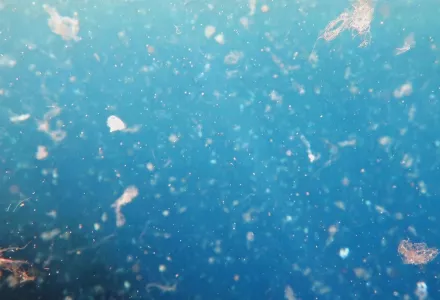David Balton is a Senior Fellow in the Polar Institute of the Woodrow Wilson International Center for Scholars. He previously served as the Deputy Assistant Secretary for Oceans and Fisheries in the Department of State’s Bureau of Oceans, Environment and Science, attaining the rank of Ambassador in 2006. He was responsible for coordinating the development of U.S. foreign policy concerning oceans and fisheries, and overseeing U.S. participation in international organizations dealing with these issues. His portfolio included managing U.S. foreign policy issues relating to the Arctic and Antarctica.
Ambassador Balton functioned as the lead U.S. negotiator on a wide range of agreements in the field of oceans and fisheries and chaired numerous international meetings. During the U.S. Chairmanship of the Arctic Council (2015-2017), he served as Chair of the Senior Arctic Offi- cials. His prior Arctic Council experience included co-chairing the Arctic Council Task Forces that produced the 2011 Agreement on Cooperation on Aeronautical and Maritime Search and Rescue in the Arctic and the 2013 Agreement on Cooperation on Marine Oil Pollution Prepared- ness and Response in the Arctic. He separately chaired negotiations that produced the 2018 Agreement to Prevent Unregulated High Seas Fisheries in the Central Arctic Ocean.
Brittany Janis is Project Coordinator for the Arctic Initiative at Harvard Kennedy School. Her research focuses on advancing the Initiative’s marine conservation and climate resilience research streams. With over a decade of experience in non-profit management, Brittany also leads Arctic Initiative strategy, partnerships, events, communications, fellowships and student engagement. Outside of the Arctic Initiative, Brittany teaches as a course coach in the Kennedy School classes, Persuasion, The Art and Science of Effective Influence and Leadership in Environmental Conflicts. She is a member of the Kennedy School Green Team plastic pollution working group and is part of the founding leadership team of the Harvard Alumni for Climate and the Environment (HACE) Special Interest Group.
Brittany graduated in May of 2019 from the Harvard Kennedy School MC/MPA Program, where she focused her studies on climate resilience. While a student at HKS, Brittany worked as a Research Assistant for the Arctic Initiative and was a member of the HKS Sustainability Leadership Council. She served as Program Director for the student-led Social Enterprise Conference and was a Philanthropy Advisory Fellow with Harvard Effective Altruism. Before coming to Harvard, she spent her career working in strategic fund development and nonprofit management most recently, serving as a Major Gift Officer at Environmental Defense Fund (EDF). She’s a former President of the Association of Fundraising Professionals Golden Gate Chapter and was honored in 2012 as a Chamberlain Scholar, a recognition given to an emerging leader in the Bay Area non-profit community.
Halla Hrund Logadóttir is the Co-founder and Co-Director of the Arctic Initiative at Harvard Kennedy School where she lectures on policy and innovation for the changing Arctic. In Iceland, her home country, Ms. Logadóttir serves on the advisory board to the Minister of Industry, Innovation, and Tourism on Iceland’s Energy Fund and collaborates with the country’s leadership on environmental and Arctic issues. She is the Founder of the Arctic Innovation Lab; a platform established to encourage solution-based dialogue on Arctic challenges and an advisor to Arctic Today, a key media on circumpolar issues. Previously, Ms. Logadóttir was the director of the Iceland School of Energy at Reykjavík University where she continues to lecture on Arctic policy.
Marisol Maddox is an Arctic analyst at the Woodrow Wilson Center in Washington, DC, a nonresident research fellow at the Center for Climate & Security, and a graduate student in International Security at George Mason University. Her research considers the security implications of an opening Arctic, the evolution of US strategy in the region, polar geopolitics, transnational crime, climate change risk mitigation, and opportunities for enhanced international collaboration on regenerative solutions to shared security concerns.
Maddox received her bachelor's degree in Environmental Studies with a concentration in Ecosystems from Binghamton University in New York. She spent several years studying organic regenerative agriculture and ecology, and now combines her background in resilient systems design with the security field to foster policies that focus on long-term stability.

